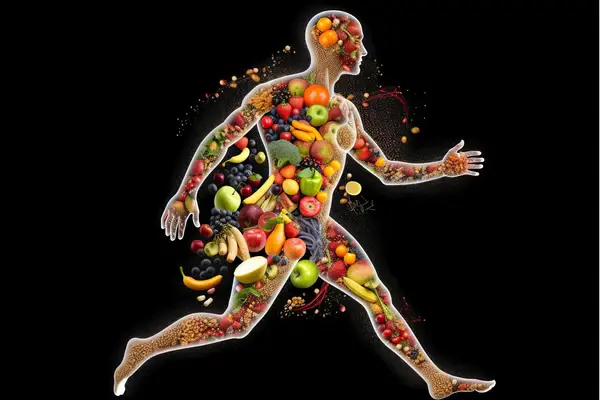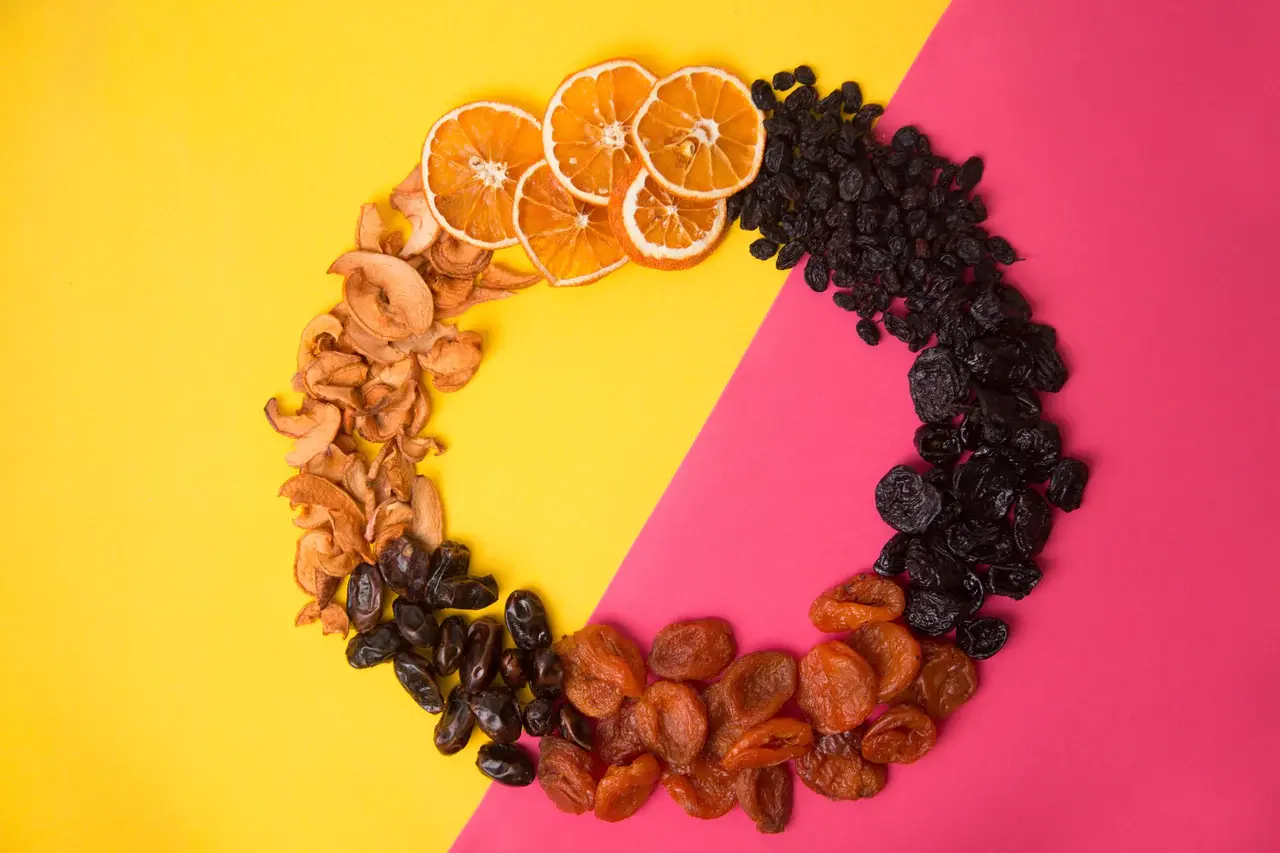Dried fruits have long been a popular handy and healthy snack, thanks to their portability, tasty flavors, and nutritional & health benefits. However, research continues to uncover even more medicinal superpowers that these dehydrated delights contain.
Beyond the vitamins and minerals that dried cherries, blueberries, apples, and other fruits provide, they also deliver some incredible healing components that can truly boost health.
1. Nutrient‑Dense Powerhouses in Every Bite
Dried fruits condense all the vitamins, minerals and fiber of fresh fruit into portable, shelf‑stable nuggets. Just 30 g of raisins delivers over 10 % of your daily potassium, while a handful of dried apricots provides 20 % of recommended vitamin A. When you need a quick micronutrient boost, few snacks rival the health benefits of dried fruits.
2. Natural Energy Without Refined Sugar
Because the water is removed, dried fruits offer concentrated natural glucose and fructose. That makes dates and figs perfect pre‑workout fuel—dried fruit health benefits you can feel in real‑time. Pair them with a protein source (like almonds) to steady blood‑sugar and avoid crashes.
3. Fiber for Weight‑Management & Gut Health
Looking for the benefits of dry fruits for weight loss? One serving of dried figs supplies 3 g of soluble fiber, which slows digestion, curbs appetite and feeds beneficial gut bacteria. A healthier microbiome can improve everything from mood to immunity.
4. Antioxidant‑Rich Disease Defense
Polyphenols and carotenoids give raisins their deep hue and prunes their signature sweetness. These antioxidants in dried fruits neutralise free radicals that accelerate ageing and chronic disease. Research links regular prune intake to improved bone density in post‑menopausal women.
5. Iron‑Boosting Power for Active Lifestyles
Struggling with low haemoglobin? Iron‑rich dried fruits like apricots, prunes and raisins can help. Combine them with a vitamin‑C source (think dried pineapple or a squeeze of lemon) to maximise absorption and fight fatigue naturally.
6. Heart‑Healthy Potassium & Good Fats
Prunes, raisins and dates pack more potassium per gram than bananas. This electrolyte supports normal blood pressure and balances excess sodium. Add omega‑3‑rich walnuts or almonds to your trail mix for a one‑two punch of heart‑protective nutrients.
7. Bone‑Strengthening Calcium & Boron
Dried figs offer both calcium and magnesium, while prunes supply boron—three minerals critical for bone formation. That’s why nutritionists often recommend dried fruits for pregnancy and post‑menopausal bone care.
8. Gut‑Friendly Prebiotics
Certain natural sugars in dried apples and dates act as prebiotics, feeding good gut bacteria. A healthier microbiome means better nutrient absorption and stronger immunity—extra dried fruit health benefits you can’t taste but will feel.
9. Convenient, No‑Mess Snacking
Long shelf life, zero refrigeration and minimal packaging waste make dried fruits a sustainability winner. Stash a vacuum‑packed berry mix in your desk drawer to crush mid‑afternoon cravings without processed junk.
10. Versatility in the Kitchen
Beyond snacking, toss cranberries into salads, blend dates into smoothies, or fold chopped apricots into breakfast oats. The culinary flexibility of dried fruit means you’ll never tire of integrating these sweet superfoods into healthy meals.
Fiber for Digestive Health
One major benefit dried fruits offer is their high fiber content. Fiber aids healthy digestion and promotes regularity. The type of fiber found in dried fruits – including soluble and insoluble fiber – supports digestive health in other critical ways too.
- Soluble fiber attracts water and turns into a gel-like consistency in the gut. This allows food and waste to smoothly move through the digestive tract.
- Soluble fiber also feeds the healthy bacteria in your intestines, allowing these probiotics to thrive.
- Insoluble fiber adds bulk to stool and speeds up digestion. This fiber prevents constipation and reduces transit time through the intestines.
- Insoluble fiber may also reduce the risk of developing hemorrhoids or digestive conditions like diverticulitis.
- Both soluble and insoluble fibers regulate the rate of sugar absorption as well. This prevents sharp spikes and crashes in blood glucose levels.
Powerful Disease-Fighting Antioxidants

Dried fruits – especially cherries, blueberries, and cranberries – contain high levels of antioxidants. These substances help prevent or delay cell damage caused by free radicals, unstable molecules linked to cancer, early aging, and other diseases.
Anthocyanins give cherries and berries their rich red-purple hues. But these flavonoids do more than make fruits visually appealing.
- Anthocyanins boast anti-inflammatory and anti-carcinogenic effects that thwart DNA damage.
- Antioxidants like vitamin C, carotenoids, and vitamin E found abundantly in dried fruits also hinder disease development through their free radical scavenging activities.
Versatile Ingredient for Healthy Eating
On their own, dried fruits make for a nutritious snack full of fiber, antioxidants, and important micronutrients like copper, magnesium, and vitamin K. Dried fruits are also versatile ingredients that can make your other recipes healthier too.
- Replace some or all sugar in muffin, bread, or cookie recipes with no-sugar-added dried fruits like cherries, dates, apricots or apples. The fruits’ concentrated sweetness means cutting back on added sugars without sacrificing taste.
- Dried fruits pump up the fiber, vitamins, and minerals in baked goods.
- Add diced dried fruits like peaches, mango, or strawberries to hot or cold cereals.
- Include dried fruits in trail mixes and healthy homemade granola bars.
- Dried fruits make tasty and nutritious additions to salads, yogurt parfaits, or on top of your morning oatmeal too.
Gut Health and Prebiotics

Prebiotics are a special type of fiber that feeds probiotics, or the good bacteria living in your digestive system. Prebiotics enhance probiotic growth and function to optimize digestive and overall health. Research shows many dried fruits serve as prebiotics.
Studies indicate dried plums, peaches, apricots, pears and dates selectively stimulate beneficial Bifidobacteria and Lactobacilli growth. These dried fruits increased counts of these probiotics while inhibiting undesirable Clostridium perfringens bacteria.
Prebiotics in dried fruits support optimal nutrient absorption and immune function too. A healthy intestinal microbiome also aids metabolic and brain health, cholesterol levels, and bone density.
Quick Tips To Maximise The Health Benefits Of Dried Fruits
Portion smart: A 30 g serve (about 2 tbsp) balances nutrients and calories.
Pair with protein: Nuts or Greek yoghurt slow sugar release.
Choose unsulfured & no‑added‑sugar varieties to avoid unnecessary additives.
Stay hydrated: Extra fiber needs water to keep digestion smooth.
FAQ (Schema‑Ready For Rich Snippets)
Q: Are dried fruits good for weight loss?
A: Yes—high fiber and low fat make them filling, but stick to 30 g portions.
Q: Which dried fruits are best during pregnancy?
A: Iron‑rich dried apricots, potassium‑packed dates and calcium‑heavy figs support maternal health.
Q: Do dried fruits have the same nutrients as fresh fruit?
A: Most vitamins and minerals remain intact; vitamin C is lower, but fiber, antioxidants and natural sugars are concentrated.







Leave a reply